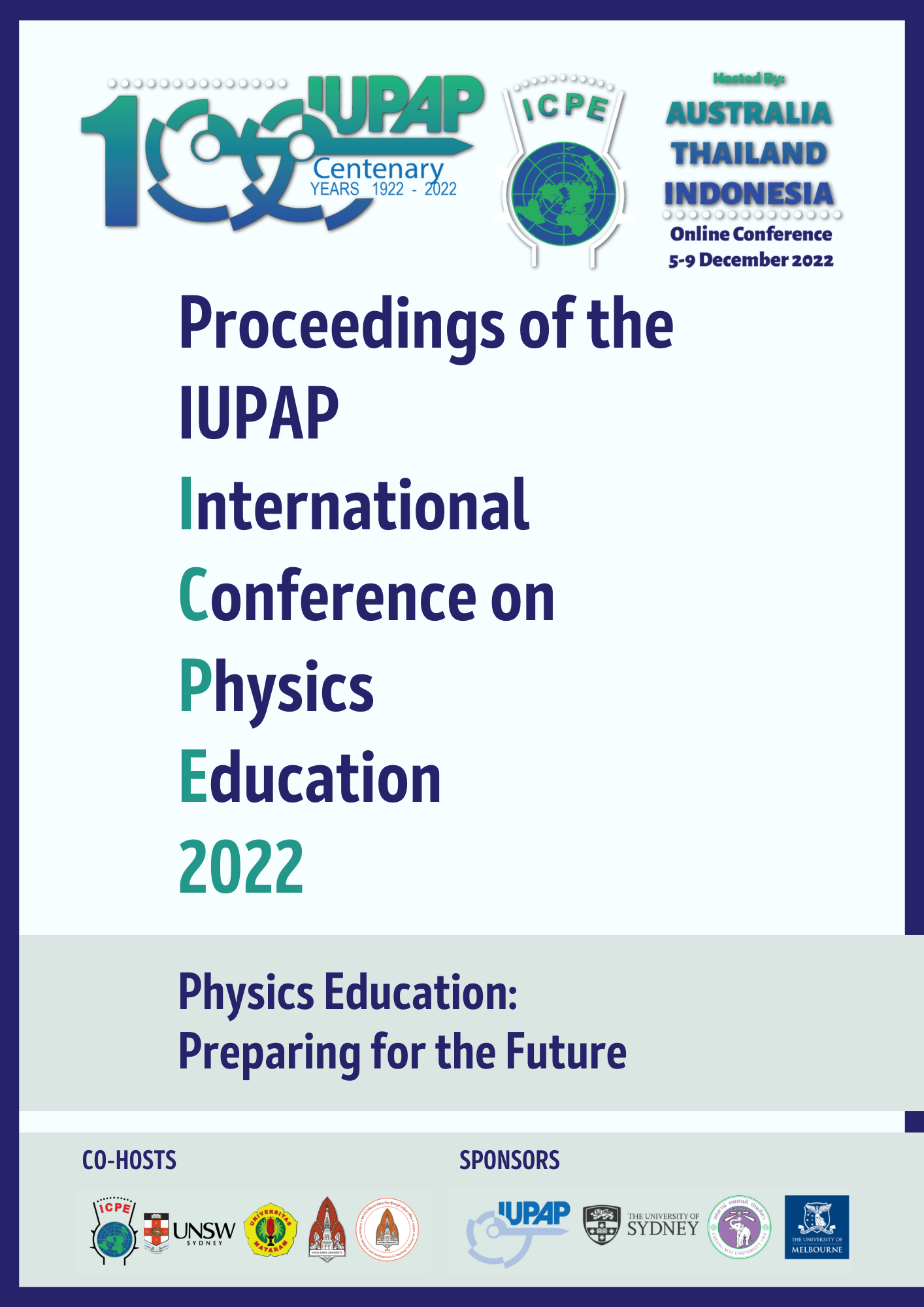Brazilian physics education curriculum from a decoloniality lens
Abstract
The teaching process is a social practice engendered in the space characterized by the school environment. In this way, we can show how the subjects participating in this process are the students, the teachers, and the community of parents. Thus, according to the structuralist perspective of culture, assumed as a set of action schemes and resources necessary for the development of any social relationship in a given group of people, the classroom is characterized as a physical space in which there will be not only the reproduction of values and beliefs, molded from language and incorporated through behavioral gestures, but it will also be transformed through the contact between the various people involved in that relationship. Thus, we can assume that in the classroom there will be the materialization of a set of values and standards predetermined by the curriculum in force, which admit political-ideological positions that determine the teaching process, resulting in what is understood by human formation. In this sense, it is justified to investigate how these values and standards would be materialized through the curriculum and what is manifested during the teaching pedagogical practice. In view of the above and, assuming the Teaching of Sciences as a context, especially Physics Education, we seek with this contribution, to present an analytical framework about the cultural elements present in the Physics Education curriculum of high school education in the State of São Paulo, Brazil and how that contributes to the formation of a scientific epistemic. To this end, we assume for this investigation the theoretical contributions provided by the decolonial theory from the perspectives of Quijano (2019), Mignolo and Walsh (2019), and Abdi (2011).
Regarding the methodological contributions, we highlight the São Paulo curriculum as our primary source of information, constituting a discursive-documentary study. As for the process of transforming information into analysis data, we used Michel Pêcheux's (2015) discursive analysis to identify the ideological bases that constitute the discourse materialized in the curriculum. As preliminary results of this study, we determined that the curriculum analyzed is aimed at full technical and marketing training, to contribute to the maintenance of the capitalist system that, as we know, reflects on social disparity, and raises the issue of merit as a unique category of access to so-called high-return courses, such as engineering and medicine. Thus, from the decolonial theoretical perspective, we can see that the didactic content produced by this curriculum does not present specific scientific epistemic elements in Brazil, to the detriment of the incorporation of standards and values arising from other nationalities, generally North American and/or European. With this investigation, we hope to understand the cultural lenses that act as colonizing operators in the set of scientific norms and in the formation of Brazilian scientific nationality.
REFERENCESAbdi, A. A. (2011). Decolonizing Philosophies of Education. Rotterdam: Sense Publishers.
Mignolo, W. & Walsh, C. (2018). On decoloniality: concepts, analytics, and praxis. Durham: Duke University Press.
Pêcheux, M. (2015). Análise de Discurso. First ed. Campinas: Pontes Editores.
Quijano, A. (2019). Ensayos en torno a la colonialidad del poder. First ed. Buenos Aires: Ediciones del Signo.
São Paulo. (2020). Currículo Paulista do Ensino Médio. Available in: https://efape.educacao.sp.gov.br/curriculopaulista/.
Downloads
Published
Issue
Section
License
Authors who publish with the Proceedings of the International Conference on Physics Education 2022 agree to the following terms:
a) Authors retain copyright and grant the journal right of first publication with the work simultaneously licensed under a Creative Commons Attribution License (https://creativecommons.org/licenses/by/4.0/) that allows others to share the work with an acknowledgement of the work's authorship and initial publication in this journal.
b) Authors are able to enter into separate, additional contractual arrangements for the non-exclusive distribution of the journal's published version of the work (e.g., post it to an institutional repository or publish it in a book), with an acknowledgement of its initial publication in this journal.
c) Authors are permitted and encouraged to post their work online (e.g., in institutional repositories or on their website) prior to and during the submission process, as it can lead to productive exchanges, as well as earlier and greater citation of published work (See The Effect of Open Access - http://opcit.eprints.org/oacitation-biblio.html).
Privacy Statement The names and email addresses entered in the Proceedings of the International Conference on Physics Education 2022 site will be used exclusively for the stated purposes of this journal and will not be made available for any other purpose or to any other party.
